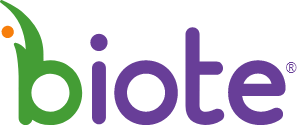Pellet Therapy FAQs
We understand that making important decisions about health can be intimidating and worrisome, but our friendly Biote Certified Providers are here to address any concerns patients may have. What is the process Biote Certified Providers use to help patients? Read our FAQs to learn more.
Bioidentical hormone replacement therapy, or BHRT, is a form of hormone therapy that has existed in the U.S. for many decades and uses hormones that are structurally similar to those found within the human body.
Bioidentical hormones, such as the ones used by Biote, work with the body’s chemistry because they closely replicate the molecular structure of the hormones that normally occur within the body.
Biote Certified Providers receive training on bioidentical hormone replacement therapy in the form of subcutaneous pellets. These pellets are inserted into the upper buttocks area during an in-office visit after testing is done to determine the exact quantity of the hormone the patient requires. Every dose is customized based on a consultation and extensive lab work to ensure a patient receives the exact concentration of hormones needed.
Bioidentical hormones, such as the ones used in training by Biote, work with the chemistry of the body because they replicate the molecular structure of the hormones that normally occur within the body.
Yes, there are two major pellet therapy types: estrogen pellets and testosterone pellets.
Estrogen is a hormone that possesses many functions and occurs in the bodies of both men and women. In women, estrogen is commonly associated with reproduction—it prompts the menstrual cycle and develops the female body’s secondary sex characteristics. However, in both sexes, estrogen is responsible for many facets of bone health, cholesterol metabolism, and the thickness and collagen content of the skin.*
Estrogen pellets are small cylinders that are custom compounded and composed of estradiol, a form of estrogen. Estrogen pellets may relieve emotional, reproductive, and non-reproductive symptoms. The most common administration for estrogen pellets is to help address the uncomfortable symptoms of aging in women.*
In women, estrogen levels are reduced as they get older. Hormone levels in women drop most dramatically during perimenopause (immediately before menopause) and during menopause. In fact, after female menopause, many men may have higher estrogen levels than women. If a woman has had a radical hysterectomy involving the removal of both ovaries, her estrogen levels will struggle significantly, as the ovaries’ primary responsibility is estrogen production. Although adrenal glands produce some estrogen, as does fat tissue, this is often not enough to effectively balance and maintain women’s hormone levels.
Estrogen pellets are primarily used to combat the effects of menopause. Studies have shown that estrogen may also help relieve some symptoms associated with mood, bone density, and heart health.*
Pellets last up to three to six months depending on gender, weight, absorption rates, and the amount of deficiency or surplus of hormones present within the patient at the time of insertion. Pellets are reinserted between two to four times per year to help keep hormones optimized and balanced and may take up to two insertions before feeling the full benefits.
No fasting is required in advance of the insertion.
Biote Certified Providers require extensive lab work while considering a patient’s candidacy for BHRT using pellets. A provider will discuss the results with a patient before moving forward with pellet therapy.
During the in-office visit, which only takes a few minutes, patients are brought into the exam room, and the insertion site is numbed. The most common site of insertion is the upper buttocks. A small incision is then made for pellet insertion. Once the pellet is inserted, the insertion site is covered with a small bandage.
Since pellets are bioidentical and contain hormones like those our body produces, pellets are completely dissolved and absorbed, leaving nothing behind.
After pellet insertion, it’s best to abstain from lower body exercise. Walking should be fine, but strenuous activity is not recommended. Avoid bathtubs, swimming and hot tubs ; however, showers are permitted. After removal of the bandage, normal activity may resume.
As each patient’s symptoms are unique, so is each patient’s path to hormone optimization. The Biote Method is customized to fit a patient’s specific needs.
Testosterone is a hormone normally found in both men and women that is responsible for many critical body processes. Testosterone is produced in the testes and ovaries, and deficiencies can occur in men and women as the body ages.
Testosterone pellets are composed of powdered testosterone fused into a pellet using stearic acid as a binding agent. The compounding pharmacies used by Biote provide high-quality pellets with ingredients that are meticulously tested. This testing process gives pharmacists, Biote Certified Providers, and patients confidence in the pellets’ quality.
Testosterone has been shown to relieve a wide range of reproductive, emotional, and non-reproductive conditions. Some of these include low energy, sexual dysfunction, mood swings, irritability, and many others.*
Every person’s body is different, but at the end of a pellet cycle or when stopping pellet therapy altogether, symptoms of fatigue, low mood and sleeplessness may recur. Typically, the patient’s symptoms will return to the same state prior to BHRT as their estrogen and testosterone levels begin to drop.

